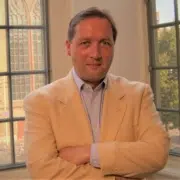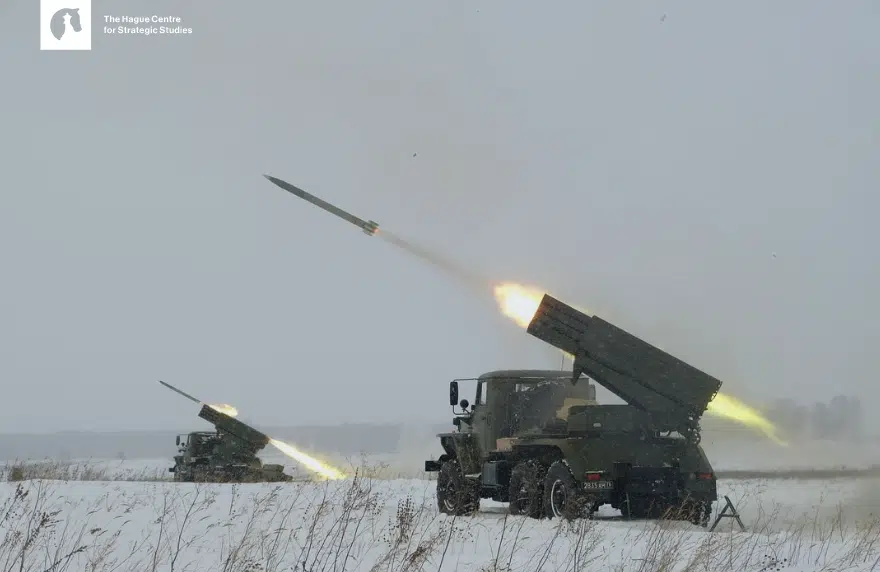Welke voorlopige lessen kunnen we leren na één jaar oorlog in Oekraïne? Na de Russische inval is een grootschalige en zelfs nucleaire oorlog in Europa niet meer ondenkbaar. Europese krijgsmachten zijn niet uitgerust voor een oorlog in het hoogste geweldspectrum, en Amerikaanse steun is nog altijd noodzakelijk voor de verdediging van Europees grondgebied.
HCSS heeft zich in een eerste analyse gefocust op het landgevecht. Want de Oekraïneoorlog kent natuurlijk vele dimensies, maar gaat vooral om het verdedigen, veroveren en heroveren van grondgebied waarbij de Russische en Oekraïense legers de hoofdrol spelen.
HCSS strategisch analist Frederik Mertens legt in deze explainer video uit welke voorlopige lessen voor het landoptreden we kunnen leren na één jaar oorlog in Oekraïne, en komt tot een aantal belangrijke conclusies. De conclusies van deze studie zijn ook als paper (PDF) en infographic (PDF) te downloaden.
Belangrijkste observaties uit onze studie:
- Inzicht in de tegenstander is van fundamenteel belang. Wij moeten niet alleen onze tegenstander begrijpen, maar onze tegenstander moet ook ons begrijpen. Afschrikking is immers niet mogelijk als wij elkaars signalen niet begrijpen. Voor Westerse landen kwam de Russische aanval als een verrassing ondanks de maandenlange Russische voorbereiding. Rusland op haar beurt onderschatte de stevige reactie van het Westen na de aanval.
- De oorlog kent een zware landcomponent. Hierin zijn gemechaniseerde infanterie, tanks en artillerie essentieel, zowel om terrein te verdedigen als om terrein (terug) te veroveren.
- Onbemande vliegende systemen (ook wel ‘drones’) hebben een belangrijke operationele waarde als verkenningsmiddel op meerdere niveaus. De integratie van waarnemings- en inlichtingenmiddelen, direct gekoppeld aan doeltoewijzing en vuurleiding en ondersteund door beveiligde satellietcommunicatie, is cruciaal om beslissend te zijn op de grond.
- Niet zichtbaar voor het blote oog, maar niet minder belangrijk, zijn cyber- en elektromagnetische oorlogsvoering ter ondersteuning van operaties in andere domeinen. Het verstoren van radioverkeer tussen eenheden, radar, luchtverdediging, datacommunicatie, internet, GPS en de besturing van drones heeft enorme impact op het slagveld.
- Voortzettingsvermogen is een kritieke randvoorwaarde voor militair succes. Het verbruik van materieel en munitie en de verliezen aan mankracht zijn enorm. Om een oorlog vol te houden zijn grote voorraden noodzakelijk en moeten verliezen voortdurend aangevuld kunnen worden.
- Adaptief vermogen is de sleutel tot militair succes. De Oekraïense strijdkrachten hebben hele korte en snelle leercycli. Maar ook Rusland leert van haar vele fouten en de Russische strijdkrachten passen hun optreden aan.
- De oorlog tussen Rusland en Oekraïne kan op verschillende manieren eindigen. In bijna elk scenario zal Rusland de komende 10-15 jaar een geduchte militaire tegenstander en belangrijke militaire dreiging voor de Europese veiligheid blijven. De Russische strijdkrachten hebben gevechtservaring, leren van hun mislukkingen, en passen zich aan.
Video developed by Alessandra Barrow
Foto bron: Een Pantserhouwitser in actie, Ministerie van Defensie






